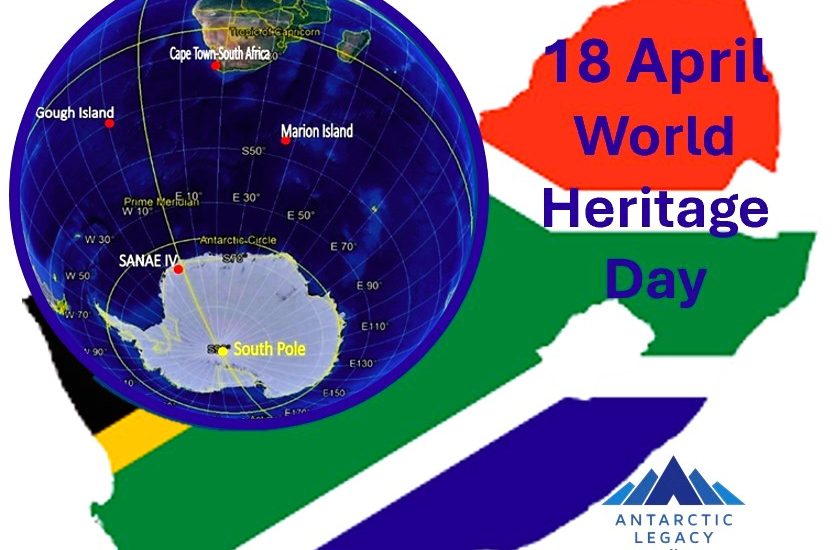Celebrating World Heritage Day: Honouring South Africa’s Polar Sites
World Heritage Day, or International Day of Monuments and Sites (IDMS), is on Friday 18th April. On this World Heritage Day, we join the global community in celebrating the diverse cultural and natural heritage that shapes our shared history and identity. This year, we shine a spotlight on an often-overlooked aspect of South Africa’s heritage—our unique and significant polar heritage.
South Africa’s connection to the sub-Antarctic and Antarctic regions dates back over a century, playing a critical role in exploration, scientific research, and environmental stewardship in the Southern Ocean territories. From Prince Edward Islands to South Africa’s long-standing involvement in Antarctic expeditions, this legacy is not only of national importance but forms part of humanity’s collective efforts to understand and protect the planet’s most remote frontiers.
Focus on the Survey of historical sites on Marion Island by JJ Boshoff, D Hart, J Loock in 1997
Click here for full document: Survey of historical sites on Marion Island
“The National Monuments Council was requested in 1996 by its representative on the Prince Edward Islands Management Committee, Mr Johan Loock, to compile a draft policy for cultural resource management on the island. Although the reports of Cooper and Avery (1986) and Tom Graham (1989) describes to some extent the historical remains on Marion Island an up to date and comprehensive inventory of historical artifacts and sites was clearly necessary.
Representatives from the National Monuments Council (the statutory authority responsible for the protection of archaeological and historical sites) and the Cultural History Museum’s maritime division (the designated curatorial institution for artifacts originating from the Island), were requested to inspect and carry out a survey of the historical sites and their associated artifacts.
The objective was to attempt, in the short period available during the ‘take over on the island, an inspection of every known historical site, and to record photographically each site and its Artifacts. Recommendations for the conservation of the sites and artifacts would be made, and where information was available from previous attempts to record the sites, an assessment of deterioration of sites, and recommendations for future management made.”
At the heart of preserving this polar heritage is the Antarctic Legacy of South Africa (ALSA). ALSA documents, archives, and shares the stories, images, research, and contributions of South Africans who have ventured into the ice. Through digital preservation and public engagement, ALSA ensures that the sacrifices, discoveries, and achievements of our polar pioneers are not forgotten, and that future generations can access and appreciate this extraordinary chapter of our national heritage.
On this World Heritage Day, let’s celebrate South Africa’s role in polar history—and recognize the efforts of those who continue to keep this legacy alive.
🌍❄️ #WorldHeritageDay #SouthAfrica #PolarHeritage #AntarcticLegacy #ALSA

